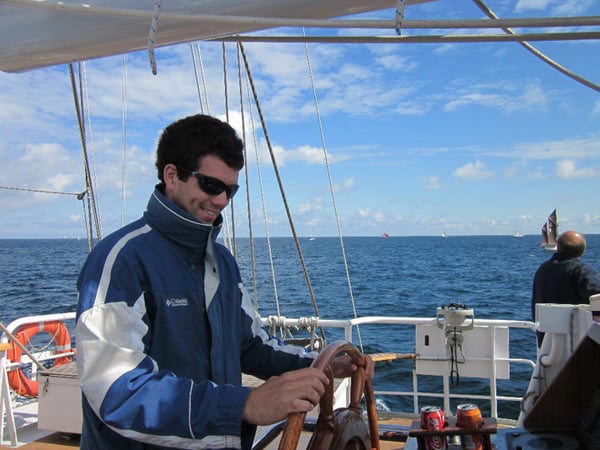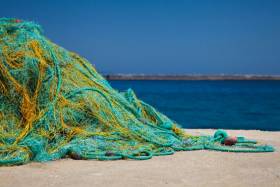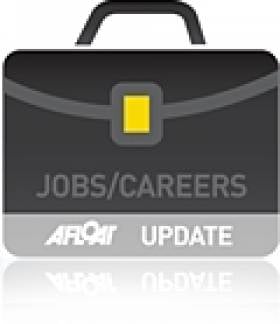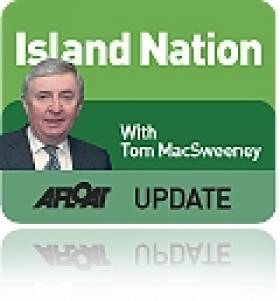Displaying items by tag: marine sector
#BrexitImpact - Ireland's fishing industry will not lose out to agriculture in the wake of Brexit, the new Marine Minister assured stakeholders at this year's SeaFest in Galway.
Speaking to The Irish Times, Minister Michael Creed said "I am not going to shop one in favour of the other" amid concerns in the marine sector of a repeat of Ireland's concessions in favour of farming in negotiations to join the then EEC in the early 1970s.
As for what measures the Government will take to address the impact of Brexit, the minister said that "until Britain triggers the exit mechanism and lays its cards on the table, we can’t react".
Recently it was suggested that Britain's exit from the EU could create an opportunity for north Atlantic coastal countries – including Ireland and non-EU member Norway – to form their own economic group and take greater control of the region's fisheries.
The impact of Brexit is already resonating in the marine sector, as major Irish Sea ferry operator Stena Line, based in Sweden, confirmed it is "considering the implications for all of [its] UK interests".
#Budget14 - Ireland's marine sector receives an increased capital allocation of €10 million, while the Marine Institute and Bord Iascaigh Mhara (BIM) will each get a funding boost for 2014, as details of the latest Budget emerged yesterday (15 October).
Marine Minister Simon Coveney announced the €10 million allocation "to maintain the infrastructure at the [Department of Agriculture, Fisheries and Marine's] fishery harbour centres and local authority fishery harbours which makes and valuable contribution to Ireland's marine sector," according to a department statement.
Similarly, the capital allocation to the Marine Institute "is being increased to €10 million to cover the cost of its ongoing research programme as well as upgrading its research vessels", while BIM receives €6.5 million "to assist the implementation of the revised Common Fisheries Policy".
There was also some good news in the Budget for businesses in the angling and aquatic tourism sectors, the retention of the 9% VAT rate for the hospitality sector, as well as a cutting of the Travel Tax to 0% as an incentive to boost visitor numbers on the back of this year's Gathering initiative.
In addition, €8 million in funding has been allocated for developing the Wild Atlantic Way, which Tourism Minister Michael Ring says will "ensure that this new west coast route lives up to international expectations".
Sports funding, however, took another hit - with the Irish Sports Council set to receive some €3.1 million less next year than in 2013. The Score has more details on the funding cut, which effectively rolls back State expenditure on Irish sport to 2006 levels.
It is as yet unclear which sports will be fare worst from the reduction - although community sports clubs nationwide are expected to receive new funding for essential works such as changing rooms and lighting via a new round of the Capital Sports Programme.
#Marine - 'Foods of marine origin' are covered by the new call for research proposals under the Government's funding programmes, as announced by Marine Minister Simon Coveney on Tuesday.
In addition, the minister announced his intention to co-fund projects related to the marine sector with the Marine Institute.
Minister Coveney said that "co-funding arrangements between research funders, where appropriate, are logical in the context of the National Research Prioritisation process and, in this instance, it makes perfect sense for my department and the Marine Institute to come together to fund research relating to marine origin foods”.
The new call for research proposals, in general, aims to build and maintain research capability in the Irish public research system, which contributes to underpinning the sustainability and competitiveness of the Irish agri-food, forestry and fisheries sectors and the achievement of growth targets set out in the Food Harvest 2020 plan.
Apart from the marine food sector, areas covered by the call include animal and crop production, food and health, forestry, the wider bio-economy as well as the safety, quality, integrity and sustainability of the supply chain.
Minister Coveney added: “I have no doubt that the research community will take full advantage of this opportunity by submitting excellent proposals and I look forward to following the process over the coming months.”
The deadline for proposal applications is Tuesday 7 May at 1pm. All documentation in relation to the call for proposals is available on the Research Section of the Department of Agriculture, Food and Marine website.
Careers at Sea Expo Returns to Galway Tomorrow Night
#JOBS & CAREERS - Anyone considering a change of career into the marine sector would do well not to miss the Careers at Sea Expo in Galway.
Minister of State for Training and Skills Ciaran Cannon will be on hand to open the latest Careers at Sea Expo in Galway city tomorrow evening (Thursday 1 November 2012).
The event, launched earlier this year by local sailing school Bow Waves, will surely be invaluable to anyone considering a change of career to the marine industry, or even seeking opportunities abroad.
As the school's Barry Conlon said last year, he believes there is a worldwide demand for qualified marine personnel and to help people take advantage of these opportunities by showcasing the range of careers available, and how to gain entry into the field.
The Careers at Sea Expo is at the Pillo Hotel on Headford Road north of the city centre, just before the Kirwan Roundabout. The evening runs from 7pm till 10pm (registration at 6.30pm) and is open to the public, with tickets costing only €10.
To reserve your place at the event contact Caroline or Alan on 091 560 560 or e-mail [email protected].
Could Waterford Lead a Tall Ships Revival?
I am aware that a number of groups are examining the possibility of launching a national sail training programme. I wonder if Waterford could be the place to lead it and be the base for national sail training. The marine sector suffers from the neglect and disregard of a disinterested Government so any revival will have to be outside of State support.
Waterford staged a hugely successful visit of the Tall Ships Race in 2005 and has been honoured with the hosting of the Race start next year. Bertie Ahern as Taoiseach snubbed the Race visit in 2005. It showed how little respect he had for the maritime sector. Half-a-million people visited the city, but Bertie couldn't be bothered to do so.
The city has been encouraging young people to get experience of crewing aboard Tall Ships. Twenty-year-old David Murray, a business information systems student at University College Cork, is becoming a sail training "veteran" through experience gained over the past two years.
He first 'shipped out' last year aboard the Tenacious operated by the Jubilee Sailing Trust of the UK, a registered charity which also operates the Lord Nelson. His first voyage, following which he sailed the north coast of Scotland on the Lord Nelson and this year became a Bosun's Mate, taking more responsibility aboard the Nelson on a voyage from Southampton to Glasgow. Then he joined the Dutch three-masted schooner, Eendracht, from Kristiansand in Norway to Hartlepool in the UK, where he disembarked and re-joined the Tenacious, again as Bosun's Mate, sailing to Bruges in Belgium and onto London. A few days later he was back aboard the Lord Nelson as Bosun's Mate from Falmouth to Milford Haven in Wales and then to Waterford, from where the Tall Ships Race will start next year,
"It's been a brilliant experience. I've met a great mix of people. Sail training is for everyone," he said. "It's been a very busy but great couple of summers with Tall Ships and I'm really looking forward to next year, especially with Waterford again hosting the fleet and crews from around the world coming to the city. I strongly recommend sail training and the fact that the races start from Waterford next summer makes it even easier for Irish young people to get involved."

David Murray is a Tall Ships veteran at the age of 20
David comes from Butlerstown in Waterford. His pleasure in the experience of tall ship sailing underlines what has been lost by the shameful behaviour of the Government in closing down the sail training programme.
It will be a national disgrace if there is not an Irish tall ship flying the Tricolour at next year's Tall Ships Race start in Waterford. The city has done magnificent work in putting Ireland to the forefront in the world of tall ships. Perhaps Waterford should be the base for the creation of a new national sail training system.
• This article is reprinted by permission of the EVENING ECHO of Cork where Tom MacSweeney writes maritime columns twice weekly. Evening Echo website: www.eecho.ie




























































